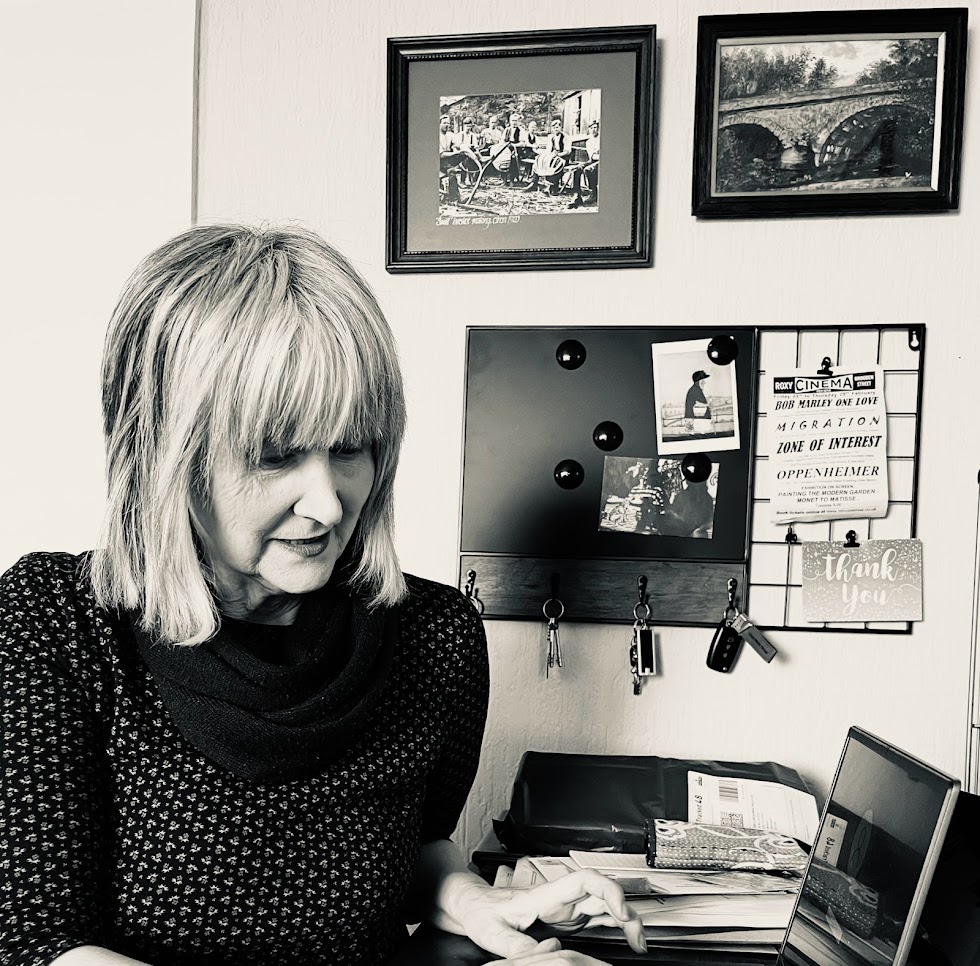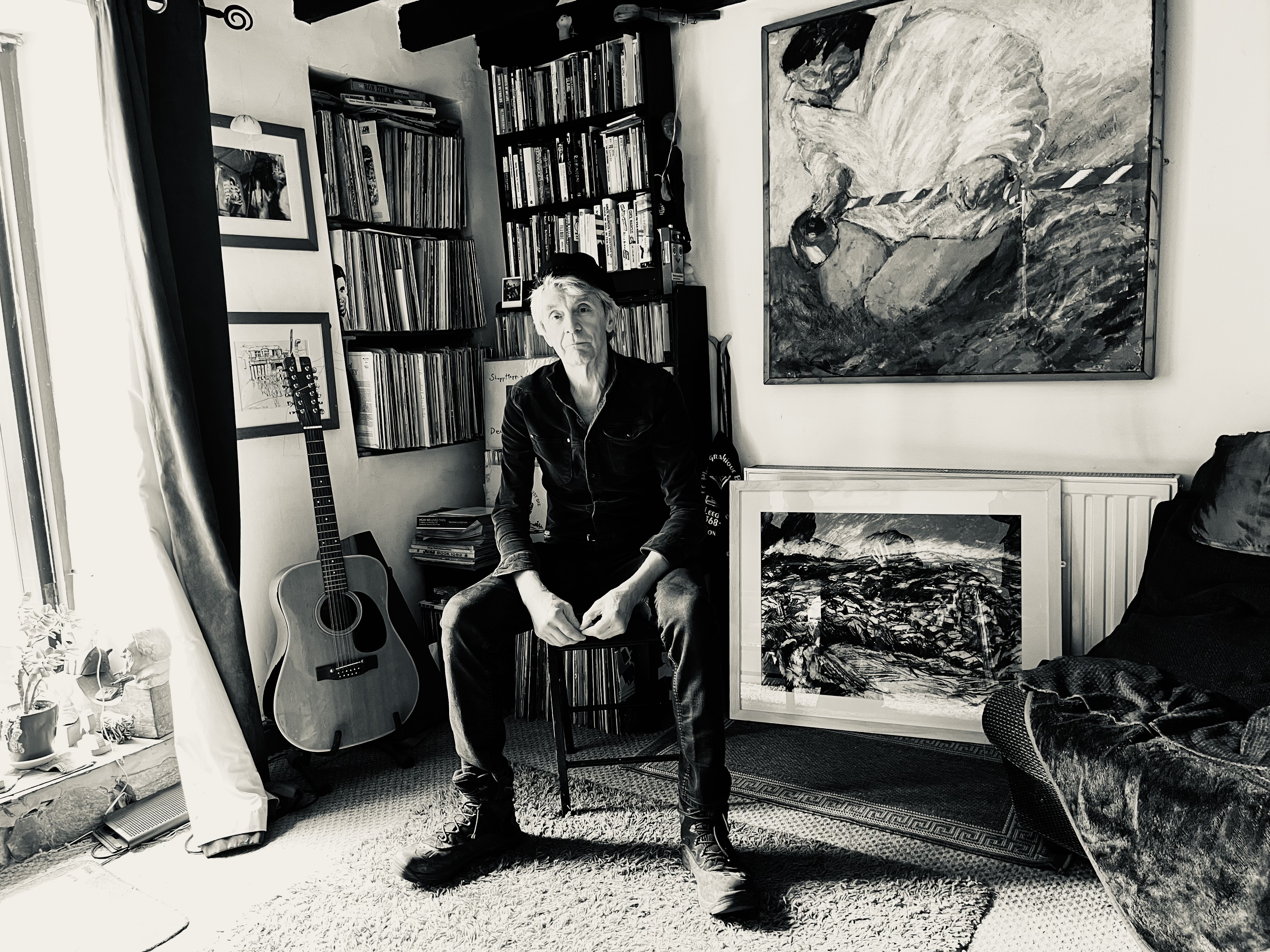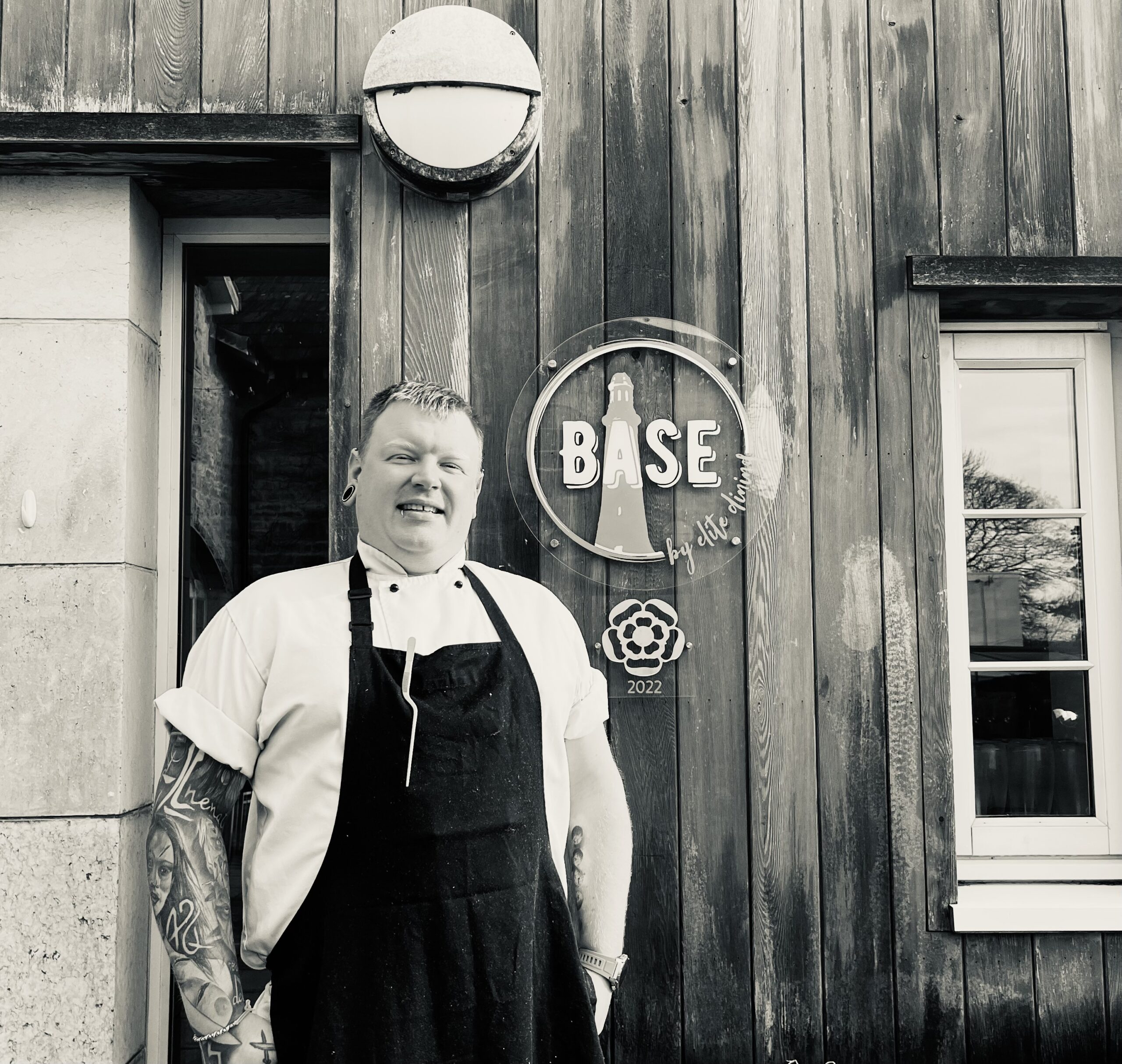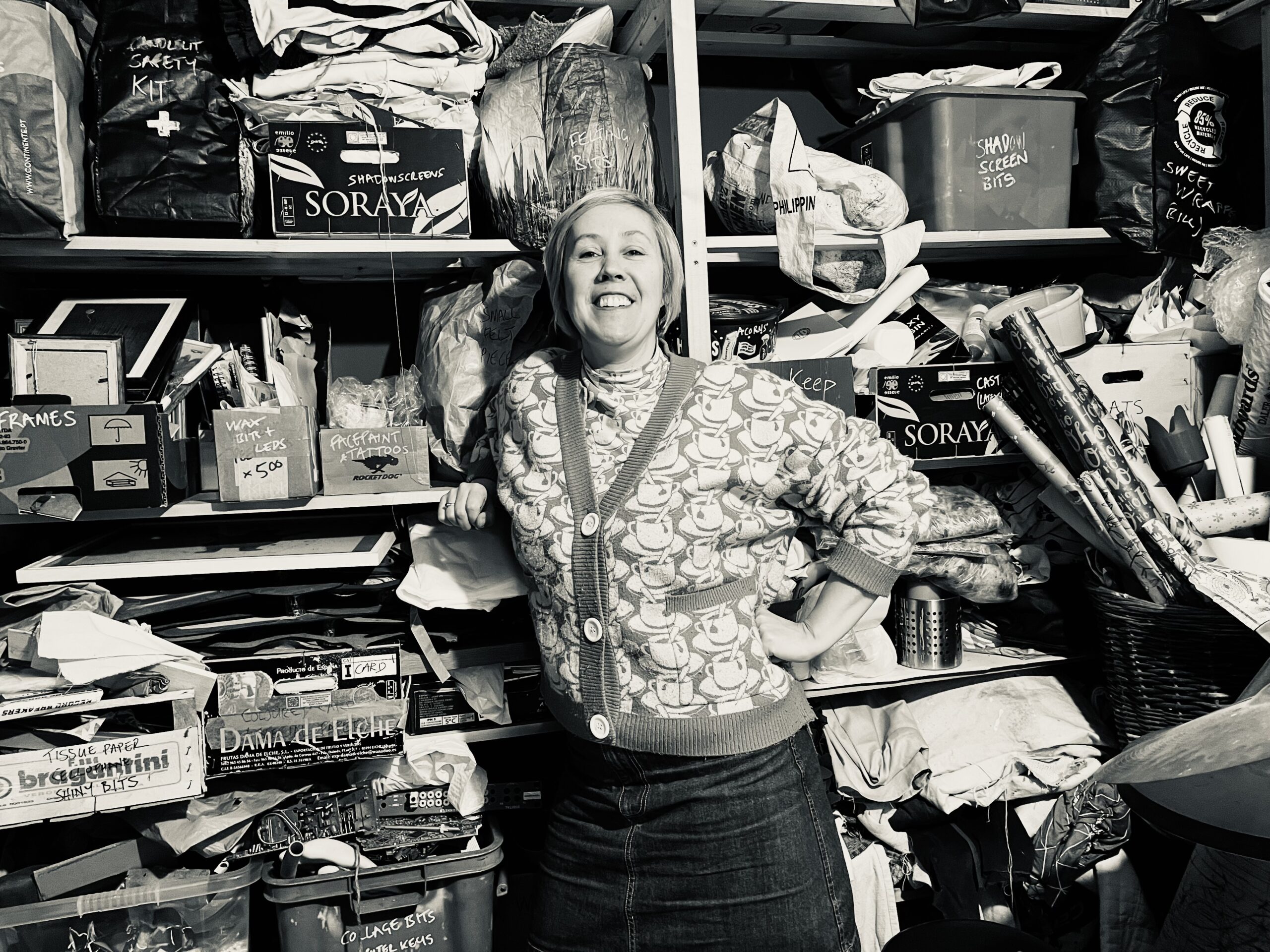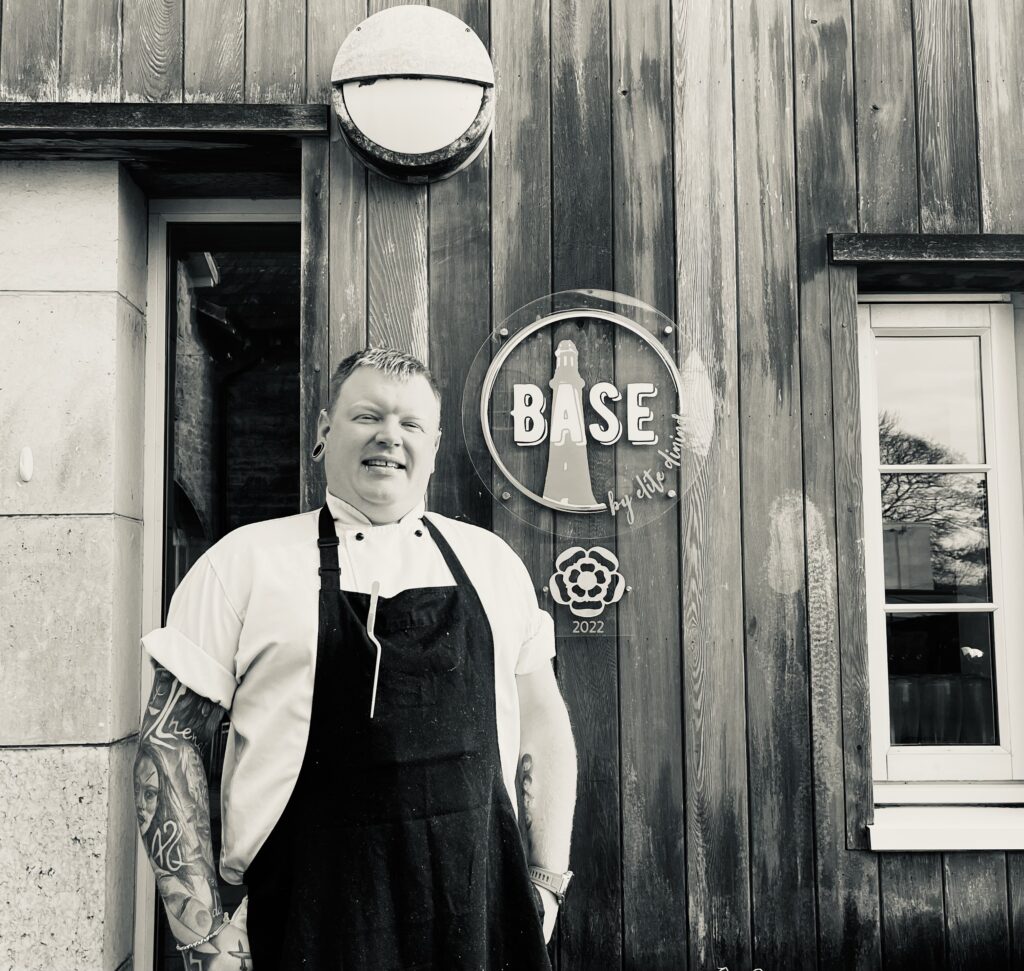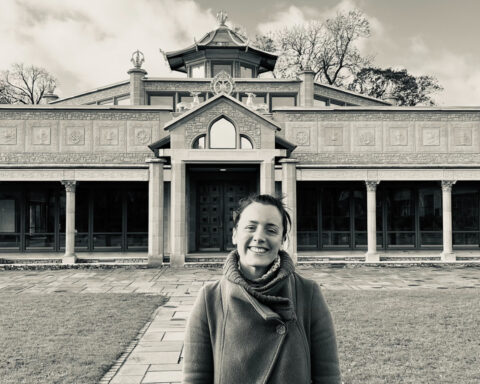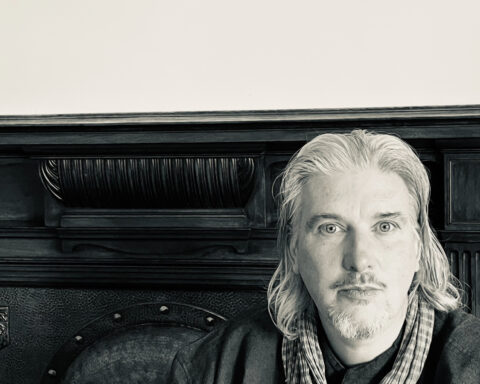|
Getting your Trinity Audio player ready...
|
TIU : Hi Mum! Thanks for taking part in this interview and being my guinea pig! When did you first move to Ulverston?
AS: I think it was 1997 because I was working at Theatre-in-The-Forest in Grizedale and David Penn was the director at the time. He had taken over from Bill Grant and I think he was also on the cusp of leaving. But I remember him saying to me just before he left – hope you have a good move or enjoy the move so I think it was 1997, yes.
TIU: I think so too because I went to work in Kendal around the same time that we arrived in Ulverston. Before we lived here though the town had already been a major part of your life?
AS: Yes I used to come down on the bus from Lowick when I was eleven. My grandmother used to send me down to see my mother who I always called “Aunty Grace”, and not “Mother”. My grandmother would make sure I got on the bus to visit her but what I always did first was head into the town centre and spend money. Growing up with a grandmother and two uncles I was a bit spoiled and they knew that I didn’t want to come to see my mother so they bribed me with cash. I always had a pocketful of money when I came to town. The first call would be Sammy’s Paper Shop.
TIU: Where was that?
AS: Bottom of Market Street. I think it was roughly where Thomas’ Bakery is now. It was like a little shippon – pitch black inside with a cobbled floor. He had stacks and stacks of magazines and I would always go in for my Fab208, Melody Maker, Jackie Magazine and the NME. He knew I was coming for them and he would stand in the doorway and shout to me – “I’ve got your magazines!”
TIU: I am one of those parents who can’t imagine sending their eleven year old off on the bus and around town alone…
AS: This was a long time ago – 1965 / 66. The fact that I was living in Lowick in the first place is because my grandmother took me from my mother’s house – something that can’t be done now. It was 1955.
TIU: I find the differences in eras astounding…
AS: Yes. So I would buy all the pop magazines and then I would go further into town to the Market Hall and to the stall that is there now that sells old postcards and stuff…
TIU: I know it – my favourite.
AS: Yes mine too but back then it was a stall that sold bric-a-brac and lots of little bits of china and ornaments. I always remember the sign in the middle which read, “Nice to handle, nice to hold, but if broken, will consider sold!”, so I didn’t dare touch things in case I broke them. I didn’t want to have to pay for them! But I did used to buy their gonks.
TIU: What’s a gonk?
AS: A gonk was really popular in the early 60s. It’s like a little figure that people collected. The ones I bought were all made of solid wood. Polished solid wood. They were really beautifully made. They had pipe cleaner arms and sometimes beads for hands and feet and like, googly eyes…
TIU: They sound mildy terrifying…
AS: I don’t think they make them now but they were really popular around the time of things like Banana Splits on telly and The Monkees and all of those early bands. I bought a set of them that were The Beatles in gonk form…
TIU: Beatle gonks?
AS: Yes! they were brilliant!
TIU: Maybe a collectors item now…?
AS: They were solid wood these gonks – I didn’t buy rubbish gonks! In recent years they have made a comeback but they are made of cardboard and fluff. They had proper good gonks back then and I bought a gonk every time I came to town.
TIU: What else do you remember from that era, about the town?
AS: It was still changing. I don’t think the bottom end of Market Street was as it is now. Market Square I think was different. I’d like to think I remember the old tank that was there but I may be dreaming that because I was aware of the story. But I do remember the road changing – so that was early 1960s. It was much darker here too – as in it looked darker here than it does today. I used to go to the bookies as well because back then, I could put a bet on.
TIU: Aged eleven?
AS: Yes. My Uncle Alan used to give me money to put on the horses. He never told my grandmother he was doing it but he would give me a few quid to put on them. I used to win a lot actually…
AS: Were you allowed to keep any of the winnings?
AS: No he would have that back but he did used to send me to put on the bets – you could do a lot more stuff back then.
TIU: So you have been visiting the town and then living in it over the last few decades – but why did you choose Ulverston specifically?
AS: Because it was handy. Your dad was still working here and it was going to be a lot easier for him but also because you pestered the life out of us to move…
TIU: Because I was bored of the country?
AS: You were wanting to get to Barrow to Cornwallis Street and we had to keep driving down there to pick you up and it was a bit hairy…
TIU: So it was my doing.
AS: Yes it was. We would go to pick you up on a night in Barrow and we would sit in the car – not daring to get out – there would be glasses flying, bottles of beer and people having fights over the bonnet.
TIU: I would take that time in 90s Cornwallis Street over what it is today, wouldn’t you?
AS: I would yes.
TIU: It was 90s Barrow I remember it being alive with people. Unless I was just seeing double of everything which is possible.
AS: I would be more wary now than I would then. It could be fun. Circus Circus and well, I forget the rest!
TIU: I can name them all but I remember much of the same in Ulverston as well. We looked up to the local bands at that time like tc: hug, Clusterfunked and Bees in a Coma. There was plenty of beer throwing and cramming into tiny spaces to watch live music back in those days. So having been local for a long time you must know most of the other creatives in the town?
AS: Some but I would say not all.
TIU: Who sticks out creatively?
AS: I would look back to Welfare State International and John Fox because he spearheaded quite an amazing change in Ulverston. When Welfare State was at its height we were coming in from Lowick and taking part in the lantern making and all the festival workshops…
TIU: I did my work experience with them in 1993 but I was a wallflower, really, had no clue what I was doing.
AS: John took a lot of interest in me when I started going there to use the library and I was writing poetry and was into surrealism from an early age and he was very keen on Andre Breton. So he asked me to do some readings with him and Pete Moser and it was just great being able to make a connection with someone like that and I think when they were involved in all of the festivals it held the town together it was like a strong band around the town. They appreciated the history and heritage – which is all based around the town beck. They celebrated the town beck a lot which I thought was wonderful. I think now although everyone has really good intentions its a bit splintered and I think that band has loosened.
TIU: As a young teenager at that time WSI and Ulverston felt inseparable – one and the same.
AS: Yes they would always do something outstanding. As for other artists and creatives since then, well I’ve worked more with Barrow people than Ulverston ones but I would like to get to know more Ulverston people because there is a lot of talent out there that’s really just not surfacing – especially within younger age groups. It would be really good for younger people to have a platform here and a place for them to go to do that.
TIU: I have trouble finding places for my kid to go to generally. There used to be the Novel Cafe – just a hangout but it had this great kids room and a welcoming atmosphere.
AS: Oh yes that was great for families on a wet saturday morning.
TIU: So far I am unaware of many places the kids can get together other than the park and on the internet! If anyone could start something – you could do it. You have a long history…
AS: I’ve worked in arts and heritage all my life. I started raising money more on the admin side and developing creative projects when I was about fourteen. I was living in Lowick and I used to devise shows with the other kids. We would go down to the Sunday School and put on these shows and as time went on I started to apply for funding from the rural arts agency or ACRE I think it is still called.
TIU: There is a wonderful photo of you all from that time behind a drum kit posing as “The Scentypedes”…
AS: That was in the Sunday School, on the little stage they have there. Families used to come and watch us it was really good fun.
TIU: So you were instrumental in pulling all your peers together?
AS: Yes I funded that and then I thought right, I can do this so I did more and more of it and that led onto outdoor promenade plays.
TIU: So you took that through to a point but there was the part where you had a lot of “life” stuff to do such as raising a family and caring for your Grandma when she got ill…
AS: Yes twelve years of that.
TIU: Twelve years of caregiving and raising a family. But then you would come full circle again?
AS: I was following John Fox’s example when we started the outdoor work. It was always site specific. There were a lot of places especially in Lowick where I had personal history and stories to tell. The Green, the fields and the places where we did those plays. Three or four years of those plays. It gave me a real chance to dig down into the past and see heritage becoming an art form.
TIU: After the promenade plays you went to San Francisco on a Winston Churchill Fellowship?
AS: I had been at Grizedale for around fourteen years but it was towards the end of it when the new regime was in, once Bill had left and we had David Penn for a year. He was assessing how it was all going until Adam Sutherland came from Inverness I think. Although I was only there for a few years with him I learnt an awful lot and met a lot of really interesting contemporary artists.
TIU: Is he still there?
AS: He is, but they also have The Farmers Arms at Lowick so it’s between the two I think.
TIU: So during the Churchill Fellowship?
AS: That was towards the end of my time at Grizedale. It was no longer Theatre in the Forest as the Theatre had closed down it was all about visual arts and performance and live art and lots of other exciting art forms really. Then Ceri Hand came along as Assistant Director or Deputy Director or something and she was the most amazing person – she played a big part in my life. She had her own galleries for a while and now she mentors artists and is doing really well with that. I learnt a lot from Ceri.
TIU: So you went to San Francisco on the Fellowship but you had never previously flown or even left the UK before?
AS: No I was at that time of life – late forties perhaps forty-eight when I went over there. I applied for the fellowship because I wanted to learn more about theatre and its origins , theatre in rural areas , storytelling, performance work and working with older people in theatre. That was the plan for when I was in California. You have to plan beforehand where you are going and who you will stay with and why. I started by staying with Wowhaus who were an art collective I previously worked with at Grizedale. They lived in Oakland. From there I went to stay with other artists along that area of Berkeley. I went into San Francisco itself with a political activist who I thought was just a nice man and found that I couldn’t get onto any of the shops because he was with me.
TIU: And you also ended up in streets where different skin types were not welcome?
AS: It was very difficult. A lot of the blocks were for ethnic minorities only. I found people would follow me and one day I asked another artist I was staying with why I was being followed and they said well look at you – what is the colour of your hair and your eyes? They knew I was different. I was followed a lot. I wasn’t too worried – more annoyed than anything – but looking back…
TIU: Looking back you could have made the news.
AS: Yes that’s probably right but I didn’t realise it. The artists gave me a hat and glasses to help disguise me and it worked quite well. Overall the trip was great, a very interesting experience.
TIU: So when you got back to the UK you got the job which you have currently, at Heron Corn Mill?
AS: Very soon after arriving back I saw it advertised. I thought right, I’ve been everywhere with this idea and I would like to go back to mills. When I was in school, during the holidays I would work in a Bobbin Mill and that mill didn’t exist anymore…
TIU: Spark Bridge?
AS: Yes. Lakeland and Woodcraft it was called. A lot of people worked there, lots went through that place. I’ve always made notes I’ve done it all my life because I was also writing poetry from being a small child. So I had notes about that mill that I had written during my time there in the holidays and never really thought I would use these notes. But eventually once I started at Heron Mill I suddenly thought here is a reason to use those notes. I wrote a play about a mill from those notes. We were looking at hydropower and putting a turbine in and I remembered the Lakeland Woodcraft mill also had a turbine. So there were a lot of connections and I got out my notes and wrote the play. We toured that as a part of Heron Mill’s programme and made quite a bit of money.
TIU: Talking of money, what is the highest amount you ever asked for?
AS: The restoration bid for Heron Mill was £939,000. I had help with that one because it was massive. I hope to never have to do anything that big again.
TIU: Do you feel the pressure asking for amounts like that?
AS: Not with that because I had help from project management – it involved building work and obviously that’s not my thing. The turbine bid was over £500,000. I felt pressure there because I didn’t understand hydropower I had to make myself a turbine expert to be able to talk to funders about it and say why we needed it. Funders didn’t understand it either at the time. It was 2007 when we started the bid and 2010 before we completely funded it. It takes a long time especially when you have to convince the funders of the benefit of it. If we had go the turbine in when we originally hoped it would have been the first one in the UK installed in a community setting. As it happened we were probably third or fourth in the end. But it was so new an idea that funders didn’t get it. They thought it was a flash in the pan, novelty thing that would wear off but thankfully we got it at the right time.
TIU: Is there anywhere in Ulverston you would fund for?
AS: I think I could help anyone make a bid for funding but personally my initial childhood experience of Ulverston was not positive and so that does still darken my enthusiasm. But I am settled here now. I’ve never really worked here – my jobs have always been out of town. Now that I am coming up to 70 I think I could help out with things around the town and that’s a goal. To meet a few people that I feel I should know and help them out. As for me there is no particular place that I would choose except the Ellers Mill. Always gives me a bit of a buzz when I walk past it.
TIU: And so to close, do you have any favourite personal places within Ulverston that you would like to share?
AS: I absolutely love the falls which is just outside Ulverston in Mansriggs area. I go there every year on my birthday and have a walk through stacks of blossom. There are lots of nooks and crannies that I am only just discovering in town itself. Good bits of architecture. I enjoy having a walk with the dog through Ford Park and Hoad Hill and looking round the allotment garden.
Audrey can be contacted on audreysteeley{at}googlemail.com
Notes:
- Heron Corn Mill
- The inspiration for this interview, (which we originally envisioned being a lot more about life – maybe we will revisit this at a later date)
If you would like to be interviewed or know of a good candidate please use our contact form, thank you!
